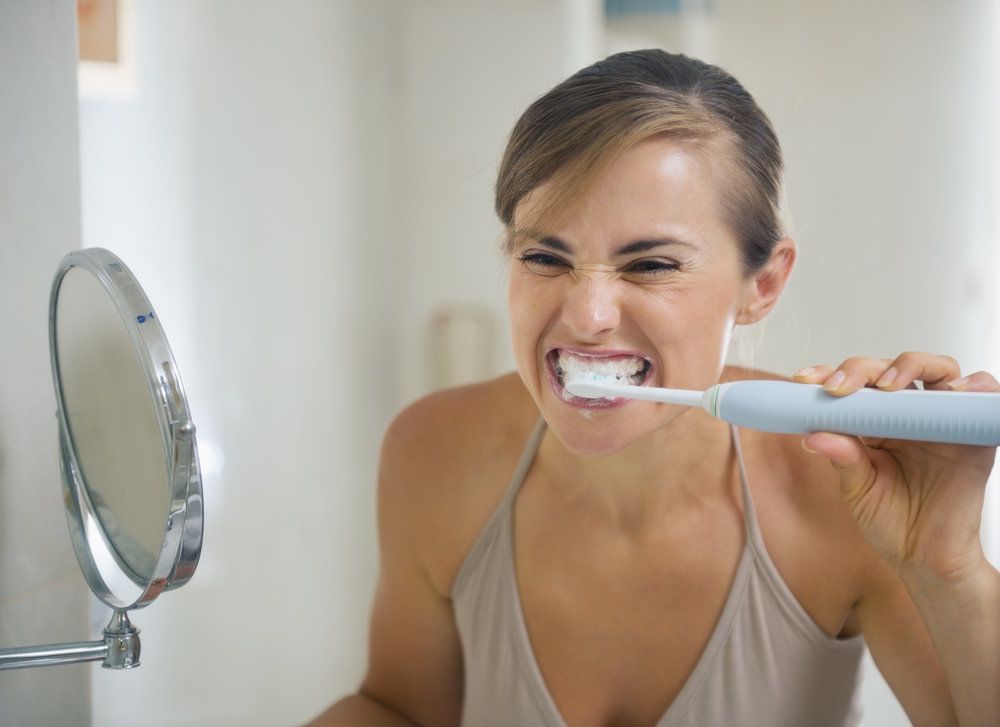History of the Toothbrush and Toothpaste
 Dr. Sharon B. Mateja is an experienced dentist who offers a comprehensive range of dental services that help patients maintain a smile that is strong, healthy, and beautiful. Our Rancho Cucamonga, CA, patients can receive general dentistry services that aid in the prevention of dental complications, restorative dentistry treatments to repair dental damage, and cosmetic dentistry treatments that address aesthetic flaws.
Dr. Sharon B. Mateja is an experienced dentist who offers a comprehensive range of dental services that help patients maintain a smile that is strong, healthy, and beautiful. Our Rancho Cucamonga, CA, patients can receive general dentistry services that aid in the prevention of dental complications, restorative dentistry treatments to repair dental damage, and cosmetic dentistry treatments that address aesthetic flaws.
Professional dental care is greatly beneficial, but it needs to be complemented by good oral hygiene habits, that include regular brushing. Thanks to the lengthy history of the toothbrush and toothpaste, individuals today have a wide range of dental supplies to choose from when it comes to oral care.
Ancient Oral Hygiene Practices
The dental profession is fairly new compared to many other fields of medicine, but oral hygiene practices and rudimentary dental services have been around much longer than most people realize. The earliest form of a toothbrush can actually be dated back to around 3500 to 3000 BC. Archeological findings tell us that Babylonians and Egyptians during this timeframe brushed their teeth with small sticks that were frayed on the end to create a type of brush, or bristles.
It often surprises people to hear that toothpaste has been around even longer than the toothbrush. Evidence shows that early forms of toothpaste were used as far back as 6000 BC. Just as they are now, it is believed that ancient toothpastes were used to keep the teeth and gums clean and to freshen the breath. However, the toothpastes used by Egyptians and other ancient civilizations were very different than those used today. These toothpastes were made up of ingredients that our Rancho Cucamonga patients would likely hesitate to put on a toothbrush, such as ashes, burnt eggshells, crushed bones, and crushed seashells.
Evolving Dental Tools
It was around the 15th century that natural bristles are first believed to have been used on a toothbrush. The Chinese began using the bristles, or thick hairs, from a pig’s neck to clean the teeth. These bristles would be attached to a handle carved from bone or bamboo. This design made its way to Europe, where it was adapted slightly to create a softer toothbrush head made of horsehairs. Surprisingly, this design stayed largely the same all the way until the late 1930s, when Dupont invented nylon, which quickly became the material of choice for toothbrush bristles.
As far as toothpastes go, they didn’t change significantly until the 1800s, when soap was added as a key ingredient. Even with this adaptation, toothpastes remained in powder form, and often contained abrasive ingredients such as chalk or ground charcoal. It wasn’t until after 1945 that soap was removed from toothpastes, and the smoother paste formula that we are familiar with today became the norm.
Modern Choices
We can thank ancient civilizations for inventing basic toothbrush and toothpaste designs that have stayed surprisingly similar at their foundation. However, it is because of modern inventions and technological advances that our Rancho Cucamonga patients today are able to choose from such a wide variety of toothpastes and toothbrushes.
Today’s options include electric toothbrushes, cavity fighting toothpastes, and whitening toothpastes, just to name a few. No matter which product a person chooses, they can be confident that they are made with materials that are safe, sterile, and effective.
Contact Us
At our dental practice, Dr. Sharon B. Mateja offers a range of dental services that will complement at-home oral hygiene habits so that you are able to enjoy your healthiest smile. To learn more about these treatments or schedule a dental appointment, send us a message online at your earliest convenience or call (909) 989-5959.
